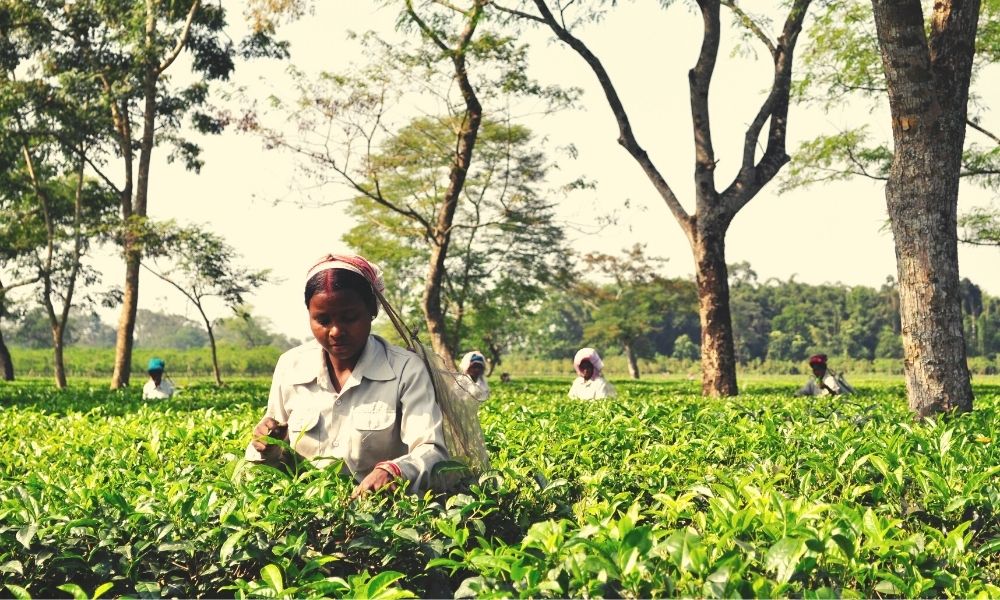
Credits: Unsplash
Another Organ Trade Racket Busted In Assam, High-Profile Names Associated
Writer: Devyani Madaik
A media enthusiast, Devyani believes in learning on the job and there is nothing off limits when it comes to work. Writing is her passion and she is always ready for a debate as well.
Assam, 16 July 2021 12:18 PM GMT
Editor : Palak Agrawal |
Palak a journalism graduate believes in simplifying the complicated and writing about the extraordinary lives of ordinary people. She calls herself a " hodophile" or in layman words- a person who loves to travel.
Creatives : Devyani Madaik
A media enthusiast, Devyani believes in learning on the job and there is nothing off limits when it comes to work. Writing is her passion and she is always ready for a debate as well.
The accused have actively monitored the workers in the tea garden areas of Upper Assam, targeting them because of their poor economic conditions.
After Dharamtul, another organ trafficking racket was busted in Assam's Dibrugarh, with tea garden workers being the victims of the vicious trade.
A senior police officer of Dibrugarh told NDTV that they started the preliminary investigation into the kidney racket after filing a case at the Lahowal police station on Thursday, July 15.
Actively Monitored Workers
Reportedly, the accused have actively monitored the workers in the tea garden areas of Upper Assam, targeting them because of their poor economic conditions. They lure them into selling off their kidney in exchange for a good sum of money.
This is another part of one-third of the giant racket running for years in the state. The department informed that several high-profile names are associated with the case.
"The poor tea garden workers are targeted by the kidney racketeers or agents who are closely monitoring them and collect details. Then they offer them money and convince them to sell kidneys. It's an organised crime, and many high-profile names are associated with the racket," the police officer said, reported NDTV.
Workers' Association To Investigate
After the matter was unearthed, the state's largest association of tea garden workers, Assam Chah Mazdoor Sangha, formed a committee for investigation.
A Survey On The Workers' Condition
The workers are plagued by poverty, the burden of loan repayments, unstable jobs, lack of primary livelihood, and so forth. Contractualisation remains another factor.
A recent study by Oxfam India revealed that only 39 percent of the workers are permanently employed while 61 percent are contractual labourers." The majority are on a contractual basis, hen social security and other mandated provisions under the Plantation Labour Act (PLA) are taken into consideration," the report read.
The report stated that a tea worker's monthly average family income accounts for ₹ 4,774. The average expenditure on food consumption is ₹ 1,854 and non-food expenditure is ₹ 3,895.
The average deduction by the employer is ₹ 778 which varies for different tea estates. After deductions, the in-hand salary remains ₹ 3,996, which also varies district-wise. They are entitled to get a daily wage of ₹ 167, inclusive of cash and non-cash benefits, but it ranges between ₹ 160 to ₹ 180 per day, the study further reads.
But to earn a proper livelihood, the compensation for them should include ₹ 285 per day as expenditure on food items and ₹ 599 per day as expenditure on non-food items. Therefore, their living wage should be ₹ 884 per day, the study concluded.
This is a vast difference between the expected earnings and the actual payments made.
For the study, 'In Defense of Living Wages for Tea Plantation Workers: Evidence from Assam', the researchers surveyed around 5,000 tea plantation workers across seven districts.
Dharamtul Racket
Earlier, a dozen of villagers of Dakshin Dharamtul in Morigaon district sold off their kidneys to organ traffickers after being the victims of extreme poverty.
The racket was brought to the attention of the police by the local Village Defence Party (VDP) members after they caught a mother-son duo and an agent who had visited the village on Saturday, July 10, in search of potential kidney sellers.
Also Read: Poverty Forces Assam Villagers To Sell Kidneys; 3 Arrested In Organ Trafficking Racket
 All section
All section














